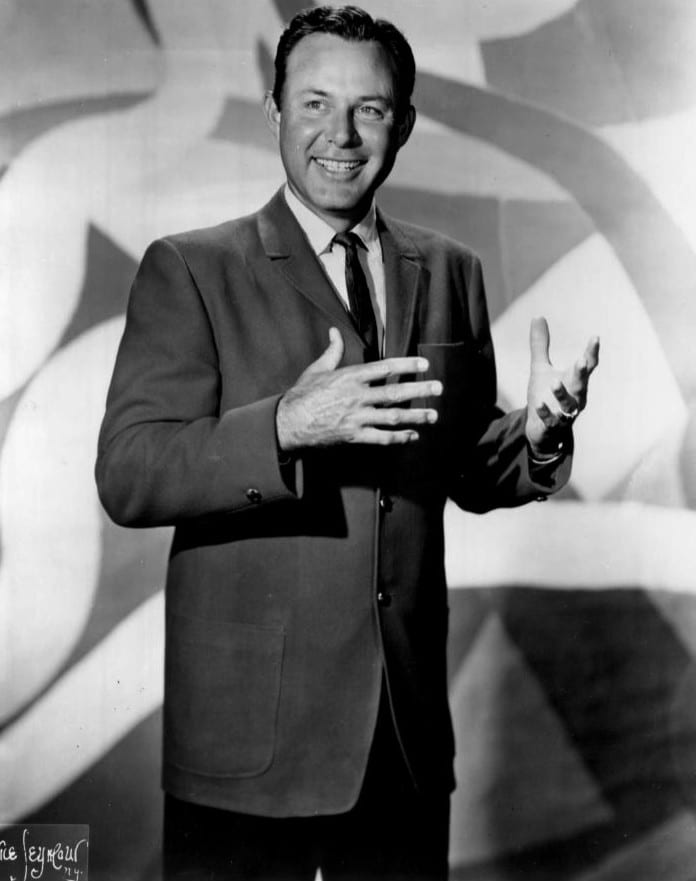LDN.One of the greatest songs ever recorded.LDN
In 1960, Jim Reeves released a song that quietly reshaped the future of both country and pop music. “He’ll Have to Go” wasn’t just another track on the radio—it became the moment that pushed Reeves from star to legend. With his velvet-smooth voice and that effortless, polished delivery, he turned a simple heartbreak story into a cultural landmark that still echoes today.
Reeves, known as “Gentleman Jim,” had always carried a sense of refinement that set him apart. Born in Texas, he worked as a radio announcer before fully stepping into the world of music. By the time “He’ll Have to Go” came along, he was already a big name in country—but this song sent him into another league entirely. It wasn’t just the lyrics or the melody; it was the presence he brought to it, the quiet emotion he layered into every line.
The story behind the song is just as striking. Written by Joe and Audrey Allison, it was sparked by a moment Joe overheard in a bar—a man pleading over the phone, trying desperately to reconnect with the woman he loved. That raw moment became the heartbeat of the opening line: “Put your sweet lips a little closer to the phone.” Simple, tender, and vulnerable in a way listeners instantly understood.

When Reeves stepped into the studio, he didn’t push or exaggerate anything. He let the song breathe. Chet Atkins kept the production light and intimate, leaving space for Reeves’ voice to do what it naturally did—pull people in. And it worked. The song shot straight to number one on the country charts and made its way up the pop charts to number two. It was one of those rare moments that showed the world that country music could be mainstream without losing its heart.
But it wasn’t just a hit—it was a turning point. “He’ll Have to Go” helped define the Nashville Sound, that smooth, warm blend of country and pop that would later inspire generations of artists. It gave country a new face, one that felt refined yet deeply emotional, and it opened doors for performers who dreamed of crossing genre lines. The song became a staple, covered by countless artists—from Elvis Presley to Ry Cooder—but Reeves’ version remained unbeatable. His voice held a kind of sincerity no one else could duplicate.

Reeves’ success took him around the world, turning him into an ambassador of country music at a time when the genre was still finding its way onto international stages. He showed global audiences that country could be elegant, expressive, and universal.
Sadly, Reeves’ life ended far too soon. In 1964, at the age of just 40, he died in a plane crash, leaving behind a legacy that felt abruptly unfinished. But his music—especially “He’ll Have to Go”—ensured he would never fade from memory. The song lived on through radio, jukeboxes, film, television, and word of mouth, constantly reintroducing Reeves to people who weren’t even born when he sang it.
His influence still shapes modern artists—those who blend genres, who push boundaries, who believe country music can speak to anyone. Shania Twain, Taylor Swift, Keith Urban—they’re part of a path Reeves helped carve out decades earlier.

Even now, “He’ll Have to Go” remains one of the most beloved country songs ever recorded. It’s timeless because it’s honest. It captures longing in a way that still feels fresh, even to people hearing it for the first time. It’s the kind of song that reminds you how powerful a single voice and a simple melody can be.
Jim Reeves didn’t just give the world a classic—he changed the sound of a genre. And as long as people fall in and out of love, his music will keep finding new ears and new hearts.
Share this masterpiece so others can experience the unforgettable voice of Jim Reeves.


